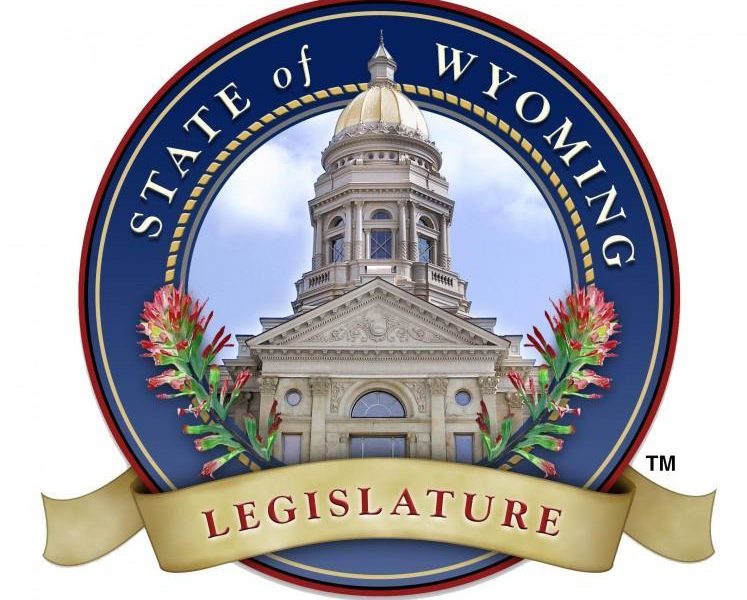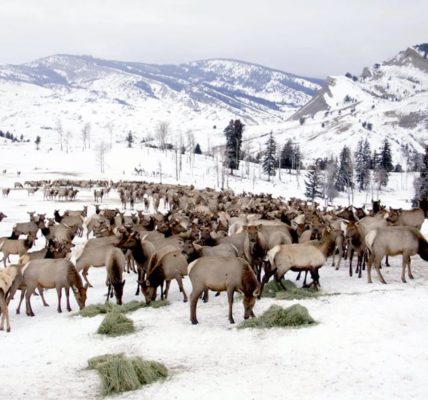◆ State lawmakers looking beyond January as a safety precaution.
By Tom Coulter
Wyoming Tribune Eagle
Wyoming News Exchange
The Wyoming Legislature will delay most of its 2021 general session beyond January as a safety precaution against COVID-19, which has spread at record levels in the state in recent weeks.
An exact timeline for the session was not finalized during a meeting of the Legislature’s Management Council on Tuesday, though lawmakers discussed a handful of possibilities that would all involve holding some sort of in-person session later in the spring.
Prior to the decision to delay the session from the Management Council, which includes leadership from both parties, lawmakers received an up-date from Legislative Service Office Director Matt Obrecht, who told the committee that the possibility of maintaining social distancing during a session is “nonexistent.”
“If there was any way I thought we could hold a successful session in January, I would be all for it,” Obrecht said.
Though much of the legislative session would be delayed under the motion approved by the council Tuesday, a few aspects required by the Wyoming Constitution, such as the swearing in of new lawmakers, the adoption of rules and the delivery of an address from Gov. Mark Gordon, would carry on as planned Jan. 12.
But with Wyoming currently among the states with the highest number of new daily COVID-19 cases per capita, legislative staff felt the statewide situation wouldn’t be improved enough in less than two months to host hundreds of visitors at the Capitol.
“In fact, it’s much more likely now that we double our infection numbers between now and Jan. 12, given the current rate of spread within the state,” Obrecht said.
Obrecht also noted many legislators are elderly, putting them at higher risk for severe complications from COVID-19.
Forty-six of the body’s 90 members are older than 60, and 13 of those are over the age of 70. Additionally, at least three lawmakers have already contracted COVID-19, with one case leading to the death of Rep. Roy Edwards, R-Gillette, earlier this month.
Volunteers who assist with the session also tend to be older, a point that many lawmakers were concerned about.
“We just flat out can’t do our jobs without the staff we have,” Sen. Bill Landen, R-Casper, said. “We’ve got people who come to those regular sessions that we do in Cheyenne who are retired from their professions and come in to help us. I bet if you did a survey of those folks, none would probably be wanting to work a session.”
“It’s not really about us,” Landen added. “It’s about everybody else.”
However, not every legislator was on board with pushing the session back, as a handful of conservative lawmakers, none of whom are on the Management Council, testified against the delay. Sen. Tom James, R-Rock Springs, argued some lawmakers won’t be able to attend a session later in the spring due to agricultural work that has to be done at that time, a point of concern echoed by others during the meeting.
Though delaying the session until the spring could bring a higher likelihood of a COVID-19 vaccine being widely available, James also said lawmakers “just need to drive on and do what we were put there to do.”
“As far as vaccines, most of us probably won’t even take it – some of us will, some of us won’t – and masks, same way,” James said. “That’s our choice.”
Though final decisions on the session will be left to the newly elected House speaker and Senate president, a few parts of the Legislature’s schedule will carry on as planned. The Joint Appropriations Committee, tasked with combing over the governor’s lengthy supplemental budget that includes more than $500 million in cuts, will still meet virtually in December, with only lawmakers having the option of attending in person in Cheyenne.
Then, in early January, new legislators will be sworn in at the Capitol, with the policy adopted Tuesday allowing them to bring up to four guests to the ceremony, and only guests would be required to follow existing public health orders, such as Laramie County’s current mask mandate.
House Minority Leader Cathy Connolly, D-Laramie, proposed an amendment to require compliance of everyone, including legislators, but the motion was rejected by a majority of the council.
“I don’t think we have to command them in their every move to come down and get sworn into office. Let’s give them that option,” Senate President-elect Dan Dockstader, R-Afton, said of the motion. “Let’s not dictate to them how they have to be there.”
The decision to not require lawmakers to follow the public health orders drew pushback from Senate Minority Leader Chris Rothfuss, D-Laramie, who said many members of his caucus would not show up for the ceremony without a guarantee of public health measures being followed.
“They want to be there and be a part of this, and they want their family to be there, but if everyone is not going to be following the best practices of health officials and what the science says is the best thing to do, you are making a choice for them – they will not come,” Rothfuss said.
Lawmakers also suggested they won’t be beholden to the mask mandate in Laramie County, which applies in state government buildings after a vote by Gov. Mark Gordon and the rest of the State Building Commission. Despite the commission’s decision, House Speaker Steve Harshman, R-Casper, said the public health orders “do not affect the second story of the Capitol.”
“It’s going to be the presiding officers who are going to make those decisions,” Harshman said.
After the newly elected members take office, the newly composed Management Council will meet shortly thereafter to assign topics for committees to work on prior to reconvening for the regular session.
Beyond that, the motion approved Tuesday gives the authority to legislative leaders “to determine the best course of action for the continuation of the 2021 General Session and develop session dates and calendars accordingly.”
“We’ve got a lot of flexibility after that Jan. 12 date on what we do,” Obrecht told the council. “We could come in May for a quick session to pass a budget, then come back later in the year, when infection rates are even lower, and have a longer session. You could also carry over those days you don’t use this year and meet for up to 40 days in a regular session during 2022.”
The Management Council will come together again in late December, with the meeting tentatively set for Dec. 23.







